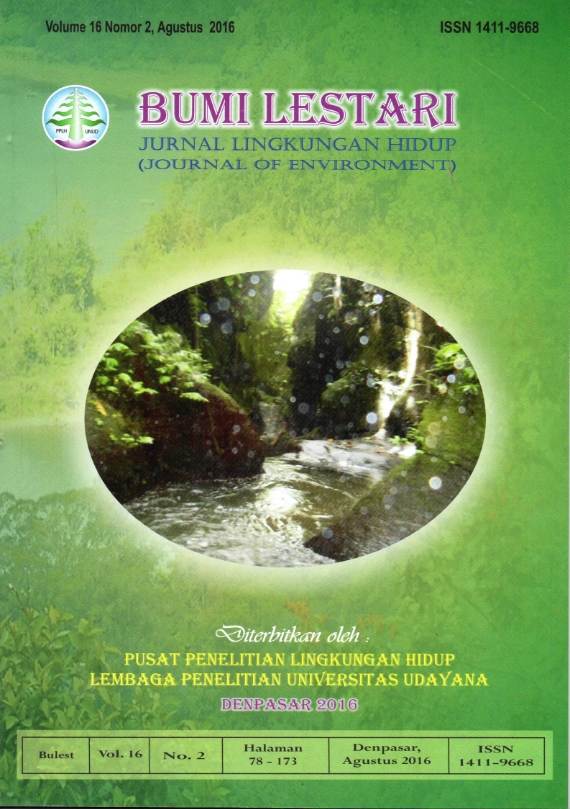Analisis Efektivitas Instalasi Pengolahan Air Limbah Dan Penilaian Masyarakat Terhadap Pengolahan Limbah Cair Rumah Sakit Umum W. Z. Yohanes Kupang
Abstract
The hospital is one fairly large waste generators that produce adverse effects on the environment. This is because the waste has the potential to cause environmental and public health problems. Most hospital waste is a hazardous medical waste that is infectious. Research carried out in public hospitals WZ John Kupang showed fairly good efficiency. The WWTP used activated sludge have an efficiency of over 60% for all parameters and relatively efficient. The highest level of efficiency was the parameter of TSS (83.60%) and the lowest was the BOD (62.03%). However, the treatment of wastewater was classified not as effective with an average percentage of 60%, meaning that waste management which carried out was used all available resources but does not meet the expected target, or in other words sewage treatment efficient but not effective.
Downloads
Keywords
Authors who publish with this journal agree to the following terms:
- All articles published by Bumi Lestari Journal of Environment and Environmental Reseach Center Udayana University are made available under an open access license worldwide immediately. This means everyone has free and unlimited access to the full-text of all articles published in Bumi Lestari Journal of Environment, and everyone is free to re-use the published material given proper accreditation/citation of the original publication. Open access publication is supported by authors' institutes or research funding agency by payment of a comparatively article processing charge for accepted articles (See Author Fees). Bumi Lestari Journal of Environment and Environmental Reseach Center Udayana University publish articles under the Creative Commons Attribution License.
- Authors are able to enter into separate, additional contractual arrangements for the non-exclusive distribution of the journal's published version of the work (e.g., post it to an institutional repository or publish it in a book), with an acknowledgement of its initial publication in this journal.
- Authors are permitted and encouraged to post their work online (e.g., in institutional repositories or on their website) prior to and during the submission process, as it can lead to productive exchanges, as well as earlier and greater citation of published work (See The Effect of Open Access).





